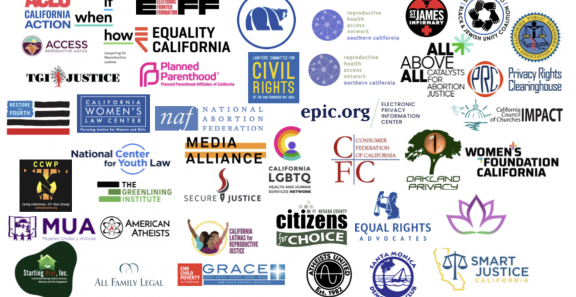California Assembly Bill 793: A Bill to Protect Reproductive Privacy

Posted: April 11 2023
We—with a group of organizations focused on civil liberties, privacy, reproductive justice, and LGBTQI rights—are proud to join a joint letter supporting California Assembly Bill 793.
A.B. 793—authored by California Assemblymember Mia Bonta—would prohibit reverse demands by law enforcement. While normal warrants seek information about a particular person, a reverse demand seeks the opposite: the identity of all people who were present at a particular location (geofence demands) or who looked up a particular term in a search engine (keyword demands).
The use of reverse demands poses a unique threat to people who seek reproductive or gender-affirming care, particularly if they are coming to California from other states. This is dangerous because it allows local law enforcement in states across the country to request the names and identities of people whose digital data trail shows they've visited California healthcare providers. They could also indicate if people searched for keywords that might reveal that they are seeking care options in California.
Reverse demands have the same practical effect as unconstitutional general warrants. General warrants are expansive and invasive searches by the government that fail to identify specific persons, devices, or places to be searched with evidence of probable cause. It is not surprising then that courts have found reverse-location demands unconstitutional.
The bill helps to protect people—especially those who are vulnerable—seeking healthcare. It would also provide clarity for companies that receive these warrants.